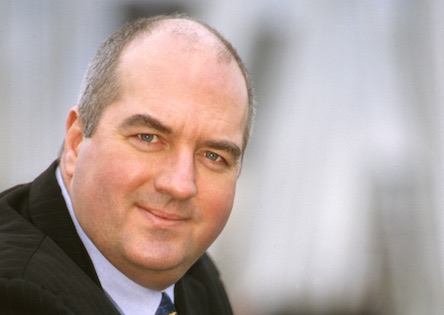A cursory glance at any form of ‘News’ media will illustrate the truth of the headline – ‘Good News is No News’.
The news is tough at the moment. The events of the last few years alone include the biggest pandemic since 1921, the largest war in Europe since 1945, and we are currently in the midst of another terrible flare up of the 75 year old conflict in Palestine / Israel.
All of which are playing out 24/7 on our TV screens, laptops, smartphones and social media.
In other words, most ‘News’ is inevitably about something bad. The financial press is no different – albeit usually more measured.
Financial Planning is about the longer term. We set minimum periods of 10 years for investment horizons and are often working with families for 20 years and more.
So the longer term success of Financial Plans is much more about:
- The longer-term trends in the global economy.
- The longer-term trends in demographics, especially life expectancy.
- The impact of inflation, especially in retirement.
Of course, at an individual level, longer life expectancies are a positive thing. We all want long and healthy retirements.
We note that if you take a couple at age 65 in the UK, there is a 45% chance of one of them reaching age 90, with a 20% chance that one of them will reach the age of 95. That’s the reason we now do Financial Planning until age 99.
It takes years, not months, for these trends to translate into real returns, as GDP and wealth slowly increase.
That said, we can already see the results coming through. Global GDP has increased by some 400% since 1993, well ahead of any inflation figures. Remarkably, almost 30% of that increase comes in the last 5 years, despite the headlines. What matters, of course, is what happens to that GDP.
In the last 30 years alone, infant mortality across the world has fallen from around 6.3% of births, to under 2.7% of births, a reduction of over 60%.
Since 1990, the proportion of the global population living in poverty has fallen from 35% to 10%, a massive fall.
In both cases, the figures are still too high – but they are clearly ‘less bad’ than they have been.
What all of this means is that we are seeing – and will continue to see – a steady rise in the numbers of the middle classes in places like India and China, with others following behind.
And the middle classes are doing what middle classes always do. They buy stuff and educate their children. Both of which drive economic growth... eventually.
The takeaway from all this is that the important stuff in the long term is quietly bubbling away.
- It’s about demographics and the potential shift of the centres of wealth creation to younger economies.
- It’s about understanding the impact of inflation and allowing for that.
- It’s being able to see increased life expectancy as a positive, not a threat.
All of which will almost certainly never appear in a positive light in a news bulletin.
Phil Billingham FPFS CFP Chartered Financial Planner, Chartered Fellow (Financial Planning). He is a Financial Planner and a director of Perceptive Planning, a Chartered Financial Planning firm based in London and Essex. https://www.perceptiveplanning.co.uk/
Biography: Phil joined the industry in 1982 and is a past director of the Institute of Financial Planning (IFP) and the Society of Financial Advisers (SOFA). He is a past member of the Financial Planning Standards Board (FPSB) Regulatory Advisory Panel. He is a specialist in helping advisers cope with regulatory change and has worked with advisers, planners and regulators in the UK, Europe, USA, Canada, South Africa and Australia. Phil is an Associate of the Chartered Insurance Institute (ACII), a Fellow of the Personal Finance Society, a Certified Financial Planner (CFP), a Chartered Fellow – Financial Planning and a Chartered Financial Planner. Phil will be writing regularly for Financial Planning Today.

